#Elliot & erick
Explore tagged Tumblr posts
Text
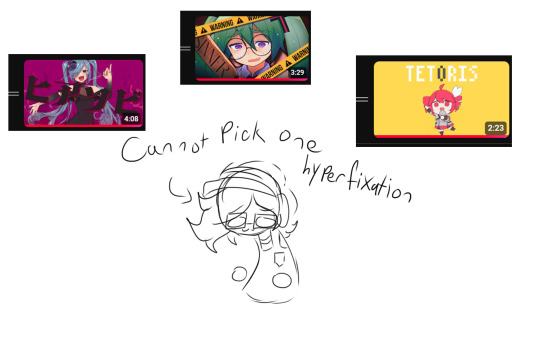
Vocaloid songs that have me in a chokehold right now
speaking of confessions of a rotten girl, I’m working on an animation (wips under the cut)



#art#ocs#original characters#morningstar series#oc: midnight#oc: winter#oc: erick#oc: elliot#oc: kio#oc: tristen#oc: windsor#hatsune miku#kasane teto#confessions of a rotten girl
20 notes
·
View notes
Text

11 notes
·
View notes
Text

Indira Scott by Elliot & Erick Jiménez for Jonathan Cohen, 2023
14 notes
·
View notes
Text





Selena Gomez | Time | Elliot & Erick Jimenez | May 2024
4 notes
·
View notes
Text

1 note
·
View note
Text




Above are photographs by Elliot and Erick Jiménez for the 2023 Florida Prize in Contemporary Art at the Orlando Museum of Art.
The twins' photographs explore art history references and religious iconography to create a body of work which beckons you in to see what emerges from their dark canvases.
The museum's information about the work-
Elliot & Erick Jiménez are the first collaborative artist team to be presented in the Florida Prize exhibition. They have the additional distinction of being identical twins. Growing up with shared interests in art and photography, each contributed individual strengths, creating their work through a process of planning, communication, and mutual respect. Their aesthetic approach is inspired by the canon of European art history and their Cuban heritage, while also being relevant to contemporary visual culture. The Jiménezes are first-generation Cuban Americans raised in Miami. Since an early age they have been involved in a religious practice native to Cuba called Lucumí and more popularly known as Santeria. A pantheistic religion, Lucumí arose by a process of syncretism. It combines the beliefs and practices of the Yoruba people, who once comprised most of the enslaved people of Cuba, and Roman Catholicism, the sanctioned religion of the island's Spanish Colonial rulers. In part to conceal the practice of Lucumí, Catholic rituals and sacraments were conflated with those of the Yoruba. Saints became an alternate manifestation of Yoruba deities known as orishas. As with seeking the blessings of saints, followers of Lucumí seek the good will of orishas so that they will benevolently offer guidance and protection in life.
In their current series of photographs, the Jiménezes have visualized the representation of deities within the syncretism of Lucumí and Catholic beliefs. Pictured are symbolic figures, their faces deeply shadowed or obscured, but identifiable through iconography much the same as the saints seen in old master paintings. This reference to the history of European painting is made explicit in works like The Grand Odalisque, which echoes Jean-Auguste-Dominique Ingres's painting of the same name. The Jiménez photograph depicts Oshun, the orisha of beauty, love, and fertility, reclining on a yellow drapery, her iconic color. Unlike Ingress overtly seductive odalisque, Oshun is a mere silhouette in black, an aloof deity covered with sparkling gems like stars in a night sky.
In The Apotheosis of Lucumí, François Lemoyne's masterpiece The Apotheosis of Hercules is the stirring backdrop for a beautiful allegorical figure representing the Lucumí religion. Surrounding her from Lemoyne's painting are the gods and goddesses of the ancient classical world, another pantheistic religion which in turn was to be conflated with later Christian practices, saints, and celebrations.
Other deities portrayed in these works include Ibeji, the orisha of twins. The Jiménezes posed for this photograph costumed in ruff collars that recall Cuba's colonial past. El Padre, El Hijo, Y El Espíritu Santo presents Obatala, creator of human bodies, shown in three different positions representing the Trinity. Yemaya, mother of all orishas, is the subject of Blue Chapel, her associated color. In this work's four panels she is a dark figure seen with the pale image of God the Father. They sensually express the evolving relationship between the two deities and between Lucumí and Christianity. The panels represent, in sequence, rejection, acceptance, advocacy, and interdependence. Blue Chapel exquisitely conveys the mystery, allure, and power these intertwined religions have for their followers.
#elliot and erick jiménez#photography#2023 florida prize in contemporary art#orlando museum of art#florida artist#florida art show#art show#art#religious iconography#ingres#lucumí#odalisque
1 note
·
View note
Photo
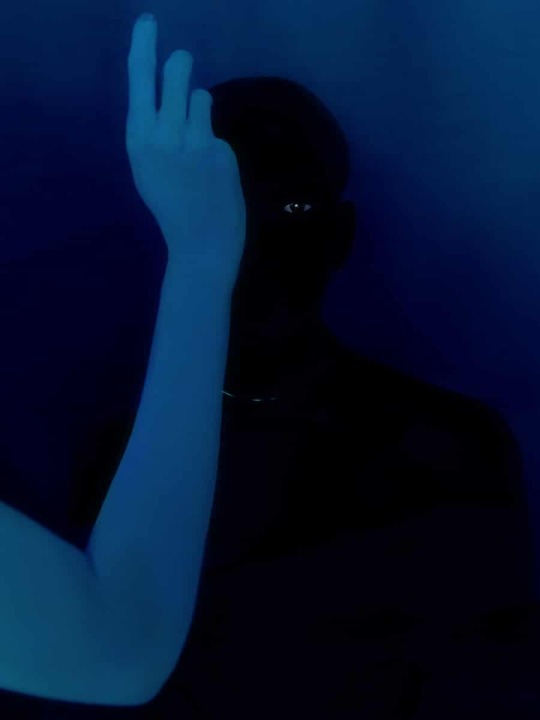

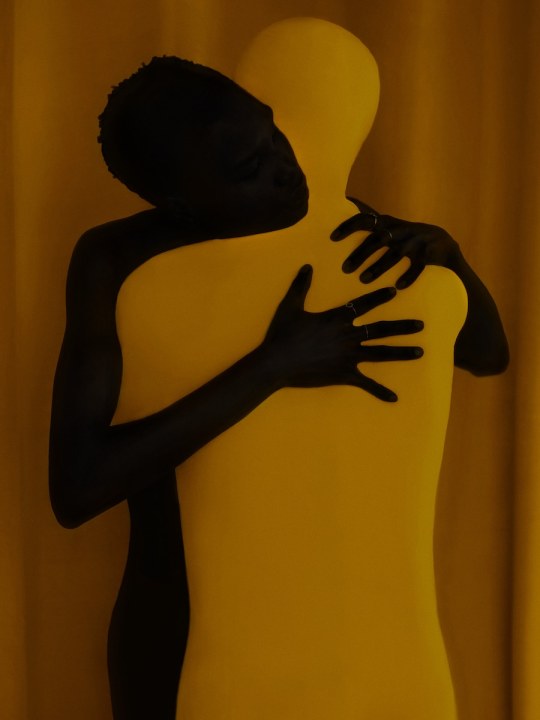
[TR] İkizler Elliot ve Erick Jiménez, Entre dos mundos'u kökenlerinin kutsal hikayelerini araştırarak derlediler. Ortaya çıkan figürler geçmişin masallarına ait olduğu, mistik bir havası olan bir dizin. - 20. yüzyılın sonunda doğan, Lucumí olarak da adlandırılan Santería, Küba'daki Afrika diasporası tarafından yaratılan bir dindir. Orishaların (Batı Afrika tanrıları) ve Katolik azizlerin figürlerini birleştiren bir senkretizm. İnançlar ve gelenekler arasındaki bu geçişin, siyah nüfusun dinlerini gizlice uygulama ihtiyacından kaynaklanmış olabileceği söyleniyor. Hıristiyan figürlerinin şeklini alan taptığı ruhlar böylece fark edilmeden geçmiştir. Doğal ve renkli soyut unsurlardan, bu tanrılar evrildi ve insan şeklini aldı. Küba ve Amerika kökenli fotoğrafçı kardeşler Elliot ve Erick Jiménez, bu maneviyatla, karşıt köklerden gelen çok sayıda yüzü olan bu dinle büyüdüler. Şimdi birlikte New York ve Miami arasında birçok etkiyi aşan rafine bir estetiğe sahip çalışmalar gerçekleştiriyorlar.
[ENG] Twins Elliot and Erick Jiménez compiled Entre dos mundos by researching the sacred stories of its origins. The resulting figures belong to the tales of the past, a series with a mystical atmosphere. - Born at the end of the 20th century, Death Santería, also known as Lucumí, is a religion created by the African diaspora in Cuba. A syncretism combining figures of orishas (West African deities) and Catholic saints. It is said that this shift between beliefs and traditions may have resulted from the need to practice the black mass religions in secret. The souls worshipped by Christian figures have thus undergone differentiation. These gods evolved and took human form from natural and colourful abstract elements. Cuban and American brothers Elliot and Erick Jiménez grew up with this spirituality, this multifaceted religion from opposing roots. Now they perform together between New York and Miami with a refined aesthetic that transcends many influences.
#Elliot and Erick Jiménez#photography#photographer#contemporary#conceptual#creative#contemporaryphotography
0 notes
Text
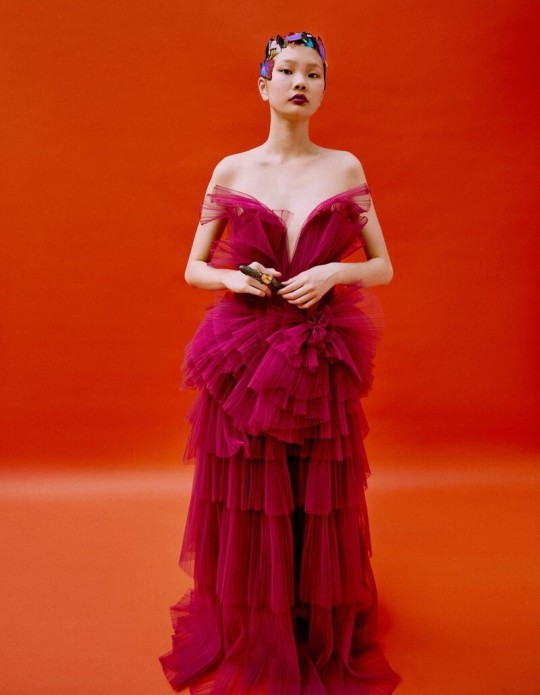
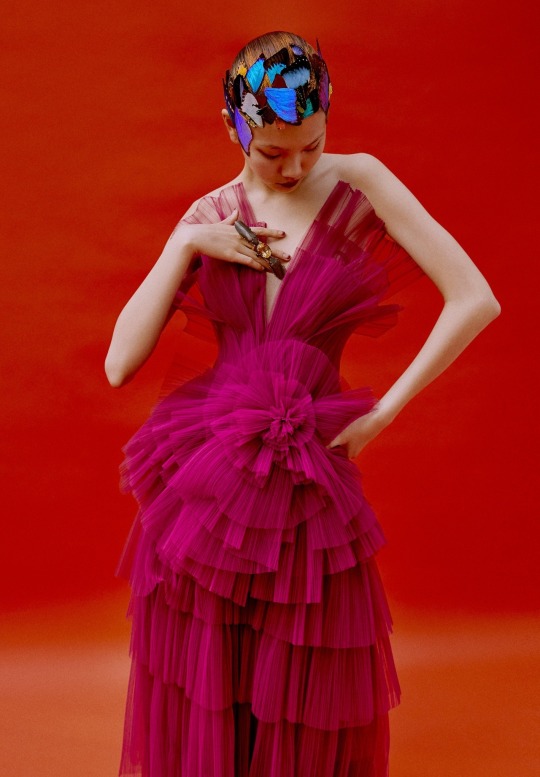
Sherry Shi by Elliot & Erick Jimenez for Tush Magazine - September 2019
266 notes
·
View notes
Text

STARTING WITH E

MASCULINE︰ earl. earle. earnest. easton. eben. ebenezer. ed. edd. eddie. eddy. eden. edgar. edison. edmund. edric. eduardo. edward. edwin. edwyn. egbert. eithan. elden. eldon. eldred. eli. eliam. elian. elias. elihu. elijah. elio. eliot. eliott. eliseo. ellington. elliot. elliot.. elliott. ellis. elmer. elmo. elroy. elsdon. elton. elven. elvin. elvis. elwin. elwood. elwyn. ely. emanuel. emerson. emery. emil. emile. emiliano. emilio. emir. emmanuel. emmerson. emmet. emmett. emmitt. emory. ennis. enoch. enrique. enzo. eric. erick. erik. erle. ermias. ern. ernest. ernie. errol. erskine. eryn. esme. esmond. esmund. esmé. esteban. ethan. ethelbert. ethelred. eugene. eugiene. eustace. evan. evander. everard. everest. everett. everette. everitt. ewart. ezekiel. ezequiel. ezra.

FEMININE︰ earleen. earlene. earline. earnestine. eartha. easter. ebba. eddie. eddieanna. eden. edie. edith. editha. edna. edweena. edwena. edwina. edwyna. edytha. edythe. effie. eglantine. eileen. eilien. eireen. elaina. elaine. elea. eleanor. eleanora. eleanore. elena. elenora. elexis. elfreda. elfrida. elfrieda. eliana. elianna. elicia. elinor. elisa. elisabeth. elise. elisia. elissa. eliza. elizabeth. ella. elle. ellen. ellery. elliana. ellianna. ellie. ellington. elliott. ellis. elly. elma. elnora. elodie. eloise. elora. elouise. elsa. elsabeth. elsie. elvina. elyse. elyzabeth. em. emalee. ember. emberly. emelia. emely. emelyn. emerald. emeri. emerie. emerson. emersyn. emery. emilee. emilia. emily. emma. emmaline. emmalyn. emmalynn. emmeline. emmerson. emmie. emmy. emmylou. emory. enid. enola. epiphany. eppie. erica. ericka. erika. erin. erma. ermintrude. ernestine. erykah. eryn. esmae. esmaralda. esme. esmee. esmeralda. esmé. esmée. essence. essie. esta. estella. estelle. esther. ethel. ethelinda. ethelyn. etta. ettie. eugenia. eugenie. eula. eulalia. eunice. euphemia. eustacia. eva. evaline. evalyn. evangelina. evangeline. eve. eveleen. evelina. eveline. evelyn. evelynn. everest. everlee. everleigh. everly. evette. evie. evonne. evvie. evyn.

NEUTRAL︰ east. easton. eastyn. ebony. echo. eclipse. eddie. eddy. edel. eden. edith. efe. ego. eike. eila. eira. eirlys. eisha. ekam. eko. el. elain. elaina. elaine. elan. eland. electric. eleph. elf. eli. elia. eliah. elias. elin. eliot. elisha. eliyah. elizah. ellery. ellington. elliot. elliott. ellis. ellison. elm. elodie. eloquence. elouise. elton. elvan. elven. ely. emaan. email. emani. emari. ember. emerald. emerson. emery. emile. emmerson. emmi. emoni. emory. emri. emry. emryn. emrys. endeavor. ender. enid. enigma. enjoy. ensemble. ensi. entity. entry. eon. epitome. ergo. erin. eris. error. escort. esen. esteem. eternity. eva. evan. evelyn. even. ever. everest. everett. everette. everlast. everly. evian. evie. evolve. evra. evren. evri. evyn. expose. ezra. ezrah. ezri.

11 notes
·
View notes
Text

I saw the extended version that @yellowtails420 did, and figured it would be fun to do my silly little guys.
#art#ocs#original characters#morningstar series#oc: lily#oc: azalea#oc: solstice#oc: lierin#oc: robyn#oc: divi#oc: kaurin#oc: eyevee#oc: windsor#oc: root#oc: kio#oc: kat#oc: draxx#oc: tristen#oc: winter#oc: maya#oc: avery#oc: melody#oc: midnight#oc: candy#oc: kayde#oc: elliot#oc: erick#oc: cia#oc: maria
4 notes
·
View notes
Text
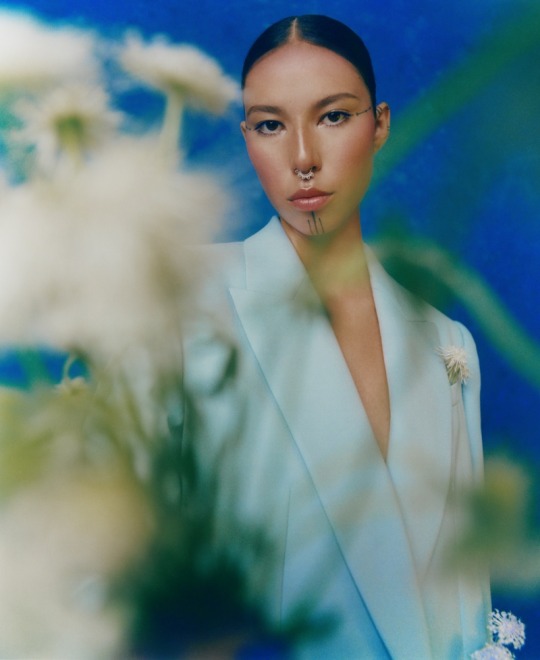
#Allure Magazine#Allure#October 2021#2021#Elliot & Erick Jimenez#Quannah Chasinghorse#Rachael Wang#Frankie Boyd#Nikki Nelms#Jenny Correa#Marcos Fecchino#Helena Suric
24 notes
·
View notes
Text

Indira Scott by Elliot & Erick Jiménez for Jonathan Cohen, 2023
1 note
·
View note
Note
masc names similar to styx and eden please?
i hope these help!

styx:
achlys, acheron, alfeios, aelo/aello, alyx brix/bryx cocytus, caron/charon, ceto
dione, diona eos, electra, eryx faber, fairy/ferry, fair
hydra, harpy, hades kishi ladon, lethe, leto, lyre, leven
mir nix/nyx oath
phlegethon, pallas, promise, pandora, perse river strix/stryx, sphynx/sphinx, siren, storm, static, scheol
tyche, thoe, truth, thia/theia whisp/wisp, wix/wyx, winx

eden:
adam, aaric/aarik/aarick, ander, andrik, atticus, archer, amy, ava blake, boaz, brecken/bracken, ben, briar caleb, callie, cheriet, clover
daniel/danielle, daniela, david easton, eli, eitan, ellerd, eric/erick/erik, edwin, edwina, elliot/elliott, elias, elad, elisha, ella, eve, ede, erin, ebony
faith grace hope, heather, holly, harper
ilon, ivy, imee jude, justice, jordan levi, lyra, liberty, lauren, laurel, leah
mia, mary, micah noah, noam, nora, naomi, neve, nik phoepe, page/paige, peris
ruth, rowan sam, stellan, stiller, seth, shira, sasha taylor, trinity, terisa
yvonne, yuval zion, zeden
#name list#name blog#names#list of names#request answered#anon answered#names list#baby names#requested list#first names#names like eden#names like styx#eden#styx
10 notes
·
View notes
Text

Work by Elliot and Erick Jiménez (photographs, left) and Reginald O’Neal (paintings, right)

Sculptures by Akiko Kotani, Paintings by MJ Torrecampo

Work by Denise Treizman

Work by Amy Schissel

Photography by Peggy Levison Nolan

Work by Magnus Sodamin

Work by Yosnier Miranda

Work by Cara Despain
There is some really impressive work currently on view for the 2023 Florida Prize in Contemporary Art at Orlando Museum of Art.
From the museum site about the exhibition-
The Florida Prize in Contemporary Art is organized by the Orlando Museum of Art to bring new recognition to the most progressive artists in the State. Each year OMA’s curatorial team surveys artists working throughout the State before inviting ten to participate. One artist will receive a $20,000 award made possible with the generous support of local philanthropists Gail and Michael Winn. Artists range from emerging to mid-career, often with distinguished records of exhibitions and awards that reflect recognition at national and international levels. In all cases, they are artists who are engaged in exploring significant ideas of art and culture in original and visually exciting ways.
This year’s artists are-
Denise Treizman (@denisetreizman )
MJ Torrecampo (@mjtorrecampo )
Akiko Kotani
Peggy Levison Nolan (@peggylevisonnolan
Amy Schissel (@amyschissel )
Reginald O’Neal (@_reginaldoneal_ )
Elliot & Erick Jiménez – (@elliotanderick )
Cara Despain (@caradespain )
Yosnier Miranda (@occurrences)
Magnus Sodamin (@magnificentmagnus )
Over the next few posts I will be adding more photos and details about the artists from the exhibition.
This exhibition will close 8/27/23.
#florida prize in contemporary art#orlando museum of art#denise treizman#mj torrecampo#akiko kotani#peggy levison nolan#amy schissel#reginald o'neal#elliot and erick jiménez#cara despain#yosnier miranda#magnus sodamin#florida artists#sculpture#art installation#painting#photography#digital art#art#art shows#florida art shows
0 notes
Text

Transgender Day of Remembrance
NOVEMBER 2023
Savannah Williams
Bernardo Panteleon
Pepper Mychel Peterson
Mariah Ruby Rachel Williams
F. L. “Bubba” Copeland
Lola Laperla Ebony McDaniels
Shandon Floyd
Tiesha McFarland
Kejuan Richardson
Amiri Jean Reid
Mya Finch
Travis Stimeling
DECEMBER 2023
Demita Jo Armstrong
Onteris Owens-Campbell
Jesse Viviano White
Star Possum
Jermaine Golden
Meghan Riley Lewis
Zoey Flye
Madison Montana
Care Hansen
Amber Minor
Ashlei Jasmine Colgate-Edwards
Fleetwood Mars Mozee
Shelby “Lexus” Riddick-Walker
Kimbella Blackshear
Easley Jeffcoat
Tripp Schultz
JANUARY 2024
Lady Fabian Sanchez
James Moen
Dana Randolph “Desiree A. DeMornay”
Quin Joy
Sasha Williams
Jennell Jaquays
Sarina Mihailoff
Sasha Washington-Cohen “Sasha Fierce”
Guelila “Gigi” Iyob
Videl Lombardo
Savannah Rose Rivers Amore
Kathy “Otter” Ottersten
Robin Valentina
Forrest Douglas Buckley
Giselle Stone
Tristan Michael Bustos “Tristyn St. Clair”
Kitty Monroe
FEBRUARY 2024
Natalia Skye
Teddy Reese Curran
Erick Krouse
Noah Jackson Chase
Ellie Walsh
Nex Benedict
Emma “África” Parrilla García
Blakely Hanson
Righteous TK “Chevy” Hill
Ashton Myles Clatterbuck
Madison Nicole Spann “Madison St. Claire”
Cecilia Gentili
MARCH 2024
Diamond Cherish Brigma
Elliot Ganiel
Fae Morganna Barbone
Aurelia A. Legassey
Alex Franco
Meraxes Medina
Ty Geissinger “Ty Holiday”
APRIL 2024
Andrea Doria Dos Passos “Maggie
Yella Clark
Allister Matthews
Tiffany Azalea Monceaux
Tara Fable
Randy Dudley
River Neveah Goddard
Tee “Ace” Arnold
George A. Schappell
Starr Brown
Robbi Mecus
Basil Brown
MAY 2024
Tayy Dior Thomas
Kita Bee
Kamryn “Cantrell” Smith
Jazlynn Johnson
Daelicious O’hare Mizani
Darri C. Moore
Niomi Jenkins
Michelle Henry
Saanti Bonét Valentino
JUNE 2024
Pauly Likens
M. Tapia
Lynn Conway
Liara Kaylee Tsai
JULY 2024
Dylan Gurley
Griffin Shaun Sivret
Kenji Zemonta Spurgeon
Ev Smith
Shannon Boswell
Levi Castillo
Lily Autumn Rose
Monique Brooks
AUGUST 2024
Noelle Woolley
Indiana Grayson
Vanity Williams
Tai’Vion Lathan
Jhzara “Femmie” Williams
Baxter Zachary Hawk
SEPTEMBER 2024
Kassim Omar
Liam Johns
Mahdia Lynn
Cass Trystero
Chilli Pepper
Barbie Iceland “Redd China”
OCTOBER 2024
Honee Daniels
Serenity Birdsong
Adela Vázquez
San Coleman
Zeta Muirgen Seraph Haber
2 notes
·
View notes
